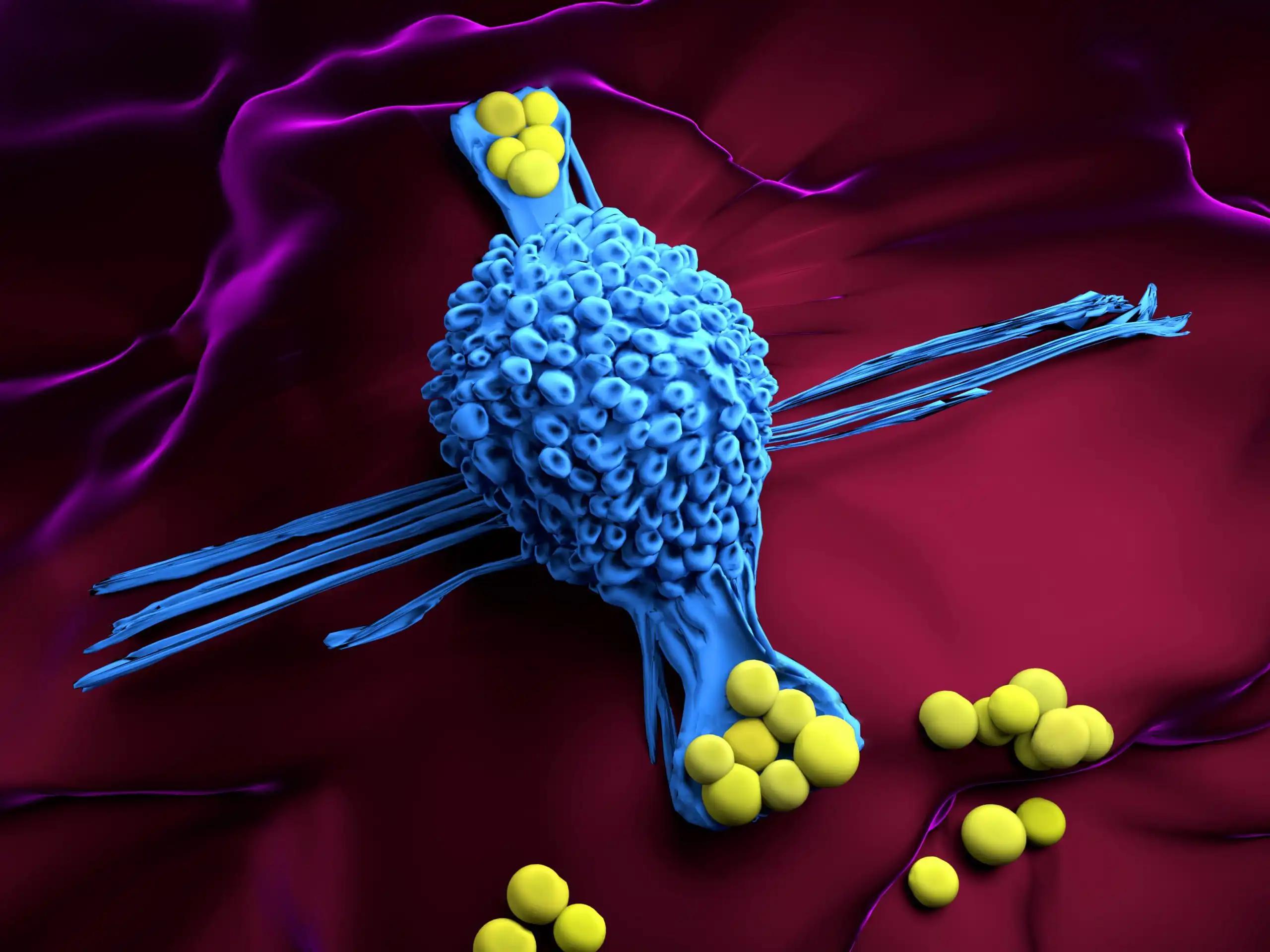KEY TAKEAWAYS
- The study aimed to examine the impact of overexpressed and mutated STK11 on NSCLC survival, exploring IRGs involvement in mutations.
- The study concluded that low STK11 protein expression and its mutation correlate with poor NSCLC prognosis, potentially altering IRGs.
Mutations in the STK11 (STK11Mut) gene could negatively affect survival in patients with Non-small Cell Lung Cancer (NSCLC), but their connection to immune-related genes (IRGs) remains unclear.
Jianqing Zheng and the team aimed to determine the influence of overexpressed and mutated STK11 on survival in NSCLC and to investigate the involvement of IRGs in STK11 mutations.
The study included 188 patients with NSCLC who had intact formalin-fixed paraffin-embedded (FFPE) tissue to detect STK11 protein expression. After immunohistochemical detection of STK11 protein, patients were categorized into a high STK11 expression group (STK11High) and a low STK11 expression group (STK11Low). Kaplan-Meier survival analysis and COX proportional hazards model compared these groups’ overall survival (OS) and progression-free survival (PFS).
Additionally, mutation data from the TCGA database categorized the NSCLC population into STK11 Mutated (STK11Mut) and wild-type (STK11Wt) subgroups, with OS differences between them compared. Bioinformatics analysis compared IRG expression differences between STK11Mut and STK11Wt populations.
The results revealed that the median follow-up time for the real-life cohort was 51.0 months (range 3.0 – 120.0 months). By the end of follow-up, 64.36% (121/188) of patients experienced recurrence or metastasis, while 64.89% (122/188) succumbed to cancer-related death. High expression of STK11 emerged as a significant protective factor for NSCLC patients, both in terms of PFS [HR=0.42, 95% CI= (0.29-0.61), P<0.001] and OS [HR=0.36, 95% CI= (0.25, 0.53), P<0.001], consistent with findings in TCGA cohorts [HR=0.76, 95%CI= (0.65, 0.88), P<0.001 HR=0.76, 95%CI= (0.65, 0.88), P<0.001].
In the TCGA cohort, STK11 mutation emerged as a significant risk factor for NSCLC in both lung squamous cell carcinoma (LUSC) and lung adenocarcinoma (LUAD) histology in terms of OS [HR=6.81, 95%CI= (2.16, 21.53), P<0.001; HR=1.50, 95%CI= (1.00, 2.26), P=0.051, respectively]. Additionally, 7 IRGs—CALCA, BMP6, S100P, THPO, CGA, PCSK1, and MUC5AC—were significantly overexpressed in STK11-mutated NSCLC in both LUSC and LUAD histology.
The study concluded that in NSCLC, low protein-level expression of STK11 and the presence of STK11 mutation were linked with poor prognosis. Mutated STK11 likely alters the expression profiling of IRGs.
Research was funded by the Fujian Research and Training Grants, Joint Funds for the Innovation of Science and Technology, Fujian Province, Fujian Provincial Natural and Scientific Foundation, and the Fujian Provincial Clinical Research Center for Cancer Radiotherapy and Immunotherapy, Science and Technology projects of Quanzhou city, Fujian Provincial Health Technology Project, and Fujian Provincial Academic and Research Program for Young and Middle-age Teachers.
Source: https://pubmed.ncbi.nlm.nih.gov/38736875/
Zheng J, Deng Y, Huang B, et al. (2024). “Prognostic implications of STK11 with different mutation status and its relationship with tumor-infiltrating immune cells in non-small cell lung cancer.” Front Immunol. 2024 Apr 26;15:1387896. doi: 10.3389/fimmu.2024.1387896. PMID: 38736875; PMCID: PMC11082287.



